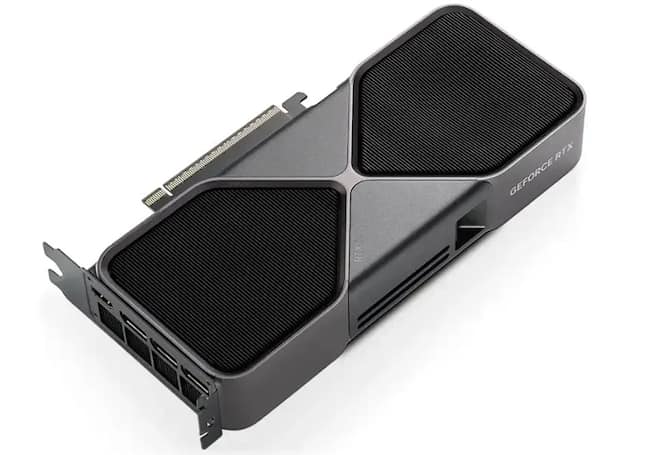When Is It Time to Upgrade Your GPU?

What is a GPU?
Graphics processing units (GPUs), often referred to as graphics cards, are a core piece of visual computing. Whether you're a gamer, a creative professional or simply a tech enthusiast, you’ve likely wondered if a graphics card upgrade is worth it.
A GPU is a specialized piece of hardware designed to handle complex graphical computations. While the central processing unit (CPU) is a computer processor responsible for general-purpose tasks, the GPU excels at parallel processing, making it ideal for rendering images, videos and 3D graphics. Modern GPUs are also essential for computational tasks like AI, machine learning and cryptocurrency mining.
External GPU vs. internal GPU
What is a GPU used for?
A GPU serves various purposes depending on the user’s needs:
- Gaming. For gamers, the GPU is the most critical component of their gaming PC. It directly affects the resolution, frame rate and graphical settings a game can run. A powerful GPU ensures smooth gameplay and an immersive experience, especially in graphically demanding games.
- Content creation. Creative professionals rely on GPUs for video editing, 3D modeling and rendering. Some software utilizes GPU acceleration to significantly reduce processing times, enabling creators to work more efficiently.
- Productivity and research. GPUs are essential in scientific research, AI development and machine learning. They accelerate data processing tasks, allowing researchers to train models and analyze data sets faster than with a CPU alone.
- General computing. Even for everyday users, a GPU can enhance the experience of using multiple monitors, watching high-resolution videos and running applications that rely on hardware acceleration.
Benefits of a graphics card upgrade
Upgrading your GPU can offer numerous advantages, depending on your usage:
- Improved performance. A new graphics card can handle modern software and games more efficiently, offering better resolution, faster frame rates and advanced graphical effects like ray tracing.
- Future-proofing. Technology evolves rapidly. Investing in one of the best GPUs today can ensure your system remains capable of handling upcoming games and applications for years to come.
- Enhanced productivity. For professionals, a graphics card upgrade can cut down processing times for rendering, simulations and other GPU-intensive tasks, boosting overall productivity.
- Support for advanced features. Newer GPUs often come with features like DirectX 12 Ultimate, ray tracing and AI-powered enhancements, which older models may lack. These features enhance visual quality and performance.
When to consider a graphics card upgrade
Knowing when to upgrade is crucial. A good starting point is knowing whether your GPU is optimal for your computer setup. Weighing the specs of different types and brands is essential when you’re figuring out which type of graphics card is better for you. Once you determine this, you can decide whether to make an upgrade or even switch to a different kind.
Here are some other scenarios where a graphics card upgrade might be warranted:
Poor performance in modern applications. If your current GPU struggles with modern games or software, showing low frame rates, stuttering or compatibility issues, it might be time to upgrade.
Changing needs. Transitioning from basic computing to gaming, video editing or machine learning can require a more powerful GPU. If your workload has evolved, your hardware should too.
Bottlenecking. A bottleneck occurs when your GPU cannot keep up with the rest of your system, limiting overall performance. Upgrading to a better GPU can balance your system and maximize its potential.
Lack of features. If your current graphics card doesn’t support modern features like ray tracing or 4K resolution, upgrading to a newer model will enhance your experience.
Factors to consider before upgrading
Upgrading isn’t always necessary, so consider these factors:
Compatibility. Ensure your PC can support a new GPU. Check for compatibility with your motherboard, power supply and physical space within the case.
Budget. High-end GPUs can be expensive. Identify your needs and find the best graphics card within your budget.
Current performance. If your current GPU meets your needs, an upgrade might not be worth the expense. However, if you’re experiencing noticeable slowdowns, a graphics card upgrade could be beneficial.
External GPU options. For laptop users, an external GPU can offer the performance of a dedicated graphics card without needing a new system. However, these setups can be costly and may not deliver the same performance as an internal GPU.
Choosing the best GPU upgrade for you
The decision ultimately depends on your specific needs and circumstances. For gamers and professionals experiencing performance issues or seeking advanced features, upgrading is often worthwhile. However, if your current GPU still meets your needs and your budget is limited, you might hold off until your workload demands more power or prices drop.
In conclusion, upgrading your GPU can unlock new possibilities, whether you're gaming, creating or simply looking for a smoother computing experience. By carefully evaluating your needs, budget and system compatibility, you can make an informed decision and choose the best GPU for your setup. Whether it's a graphics card for PC gaming or an external GPU for your laptop, the right choice can make all the difference.